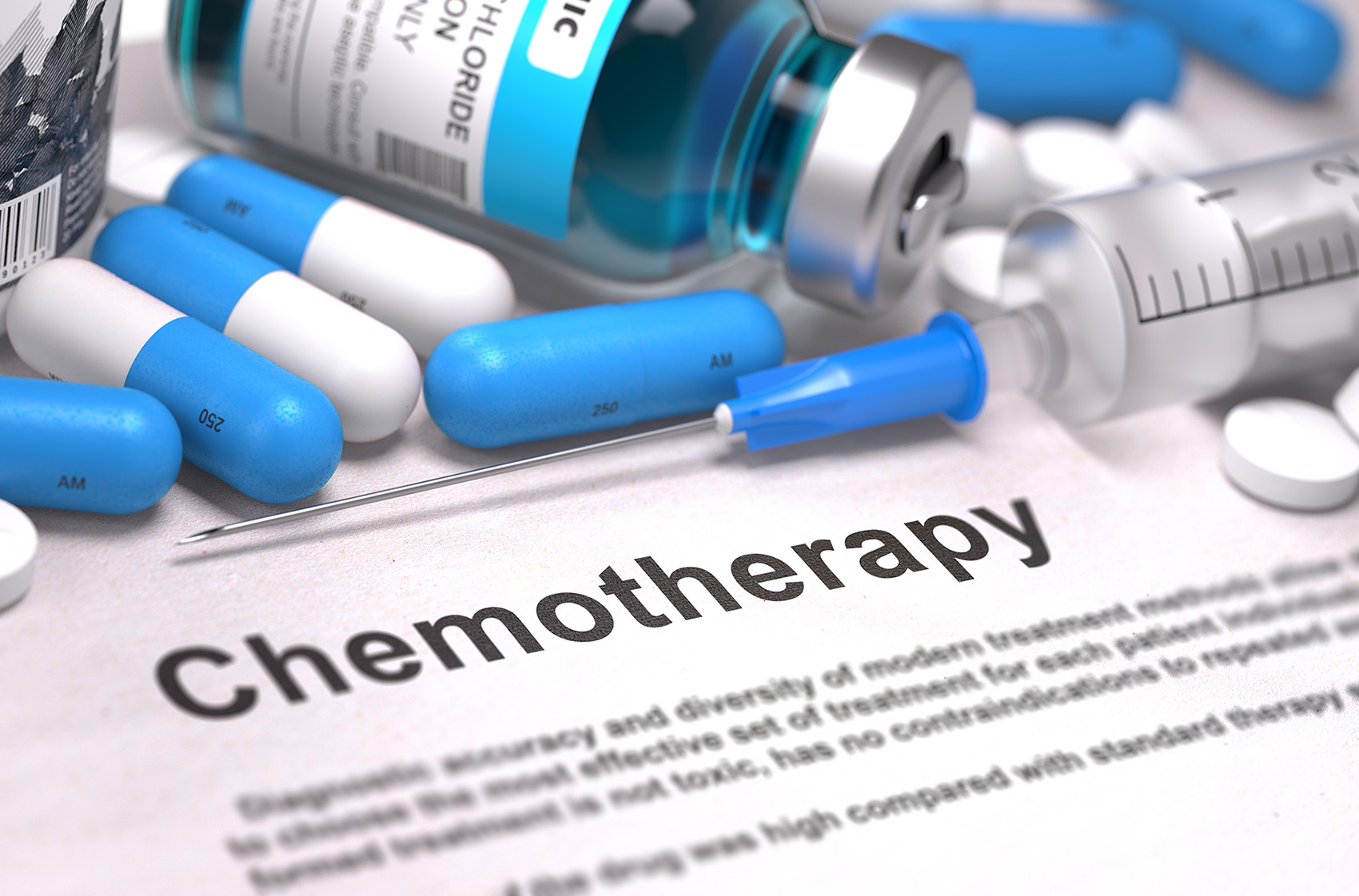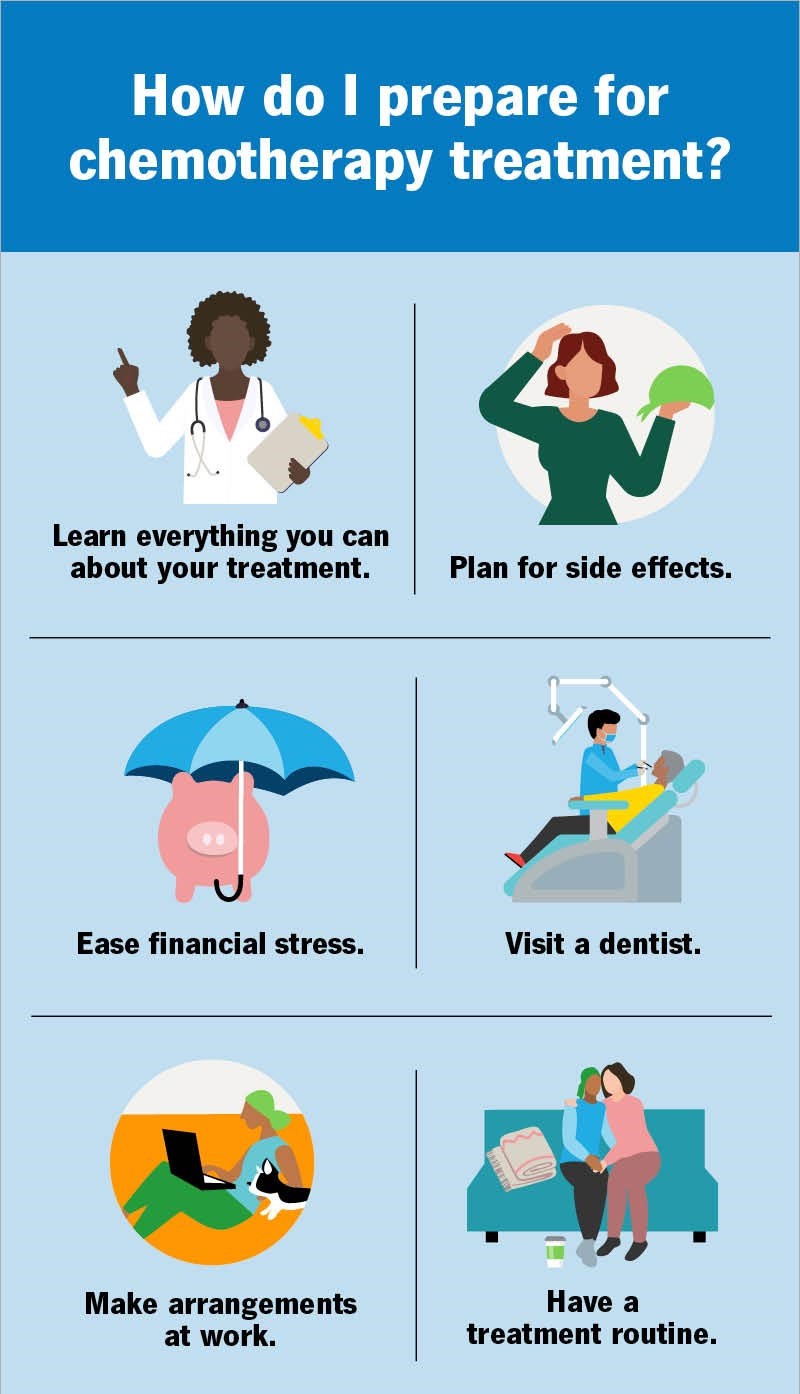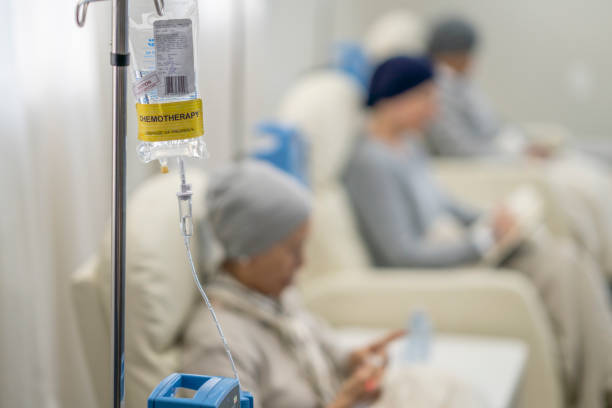Book Appoinment

Chemotherapy
Chemotherapy is a common cancer treatment. It uses drugs to destroy cancer cells and prevent tumor growth. It may be paired with other cancer treatments such as radiation therapy or surgery. Chemotherapy is usually given intravenously (through a vein). It’s an effective treatment but can cause side effects.
During chemotherapy, you may experience various side effects, including nausea, fatigue, hair loss, and changes in appetite. Your healthcare provider will offer strategies to manage these side effects and improve your comfort. It's important to communicate any concerns or unusual symptoms you experience during treatment so that adjustments can be made as needed.
How do I prepare for chemotherapy treatment?
Your oncologist will ensure you’re healthy enough for treatment by running tests. In the meantime, you can take steps to prepare for chemo.
- Educate yourself thoroughly about your treatment. The more informed you are, the better equipped you'll be to manage life with chemotherapy. Discuss with your oncologist the specific chemotherapy drugs you'll be receiving, including their benefits and possible side effects. Inquire about available resources such as online information, organizations, and support groups where you can gain additional insights into your treatment.
- Prepare for potential side effects by taking proactive measures before your treatment begins. For instance, if hair loss is a possibility, consider arranging for a wig that matches your current hair color and style, or stock up on scarves and head wraps. If you anticipate skin changes and increased sensitivity to sunlight, choose skin care products with gentle ingredients. There are numerous other steps you can take to prepare for and manage side effects effectively.
- Schedule a visit to the dentist before starting chemotherapy.Common side effects of chemotherapy, such as mouth sores and altered taste, can make eating less enjoyable. To avoid additional complications, ensure your teeth are in good health and your mouth is free from infections before beginning treatment.
- Ease financial stress by understanding your insurance coverage for chemotherapy.Most insurance plans cover these treatments, but it’s important to know your benefits and available resources. Look into patient assistance programs and visit the National Cancer Institute’s support services page for information on financial resources and other support available to cancer patients.
- Coordinate with your employer about your work arrangements during chemotherapy.You might need a flexible work schedule, work from home, or take time off, especially on treatment days. Consult your oncologist to understand how the treatments might affect your work performance, and then discuss these considerations with your employer to make the necessary adjustments.
- Establish a treatment routine. Ask your oncologist about the details of your treatment, including the environment and duration. Use this information to prepare, such as bringing a lunch or entertainment if treatment is lengthy. Many people also eat a snack an hour before to help prevent nausea.

What is chemotherapy?
Chemotherapy is a common type of cancer treatment, often referred to simply as “chemo.” It involves the use of powerful drugs to target and destroy cancer cells, and it is one of several approaches to treating cancer. Chemotherapy can be used to treat various types of cancer, either as a primary treatment or in combination with other therapies.
- Hormone therapy: Drugs that prevent certain cancers from getting the hormones they need to grow.
- Immunotherapy: Drugs that help your immune system fight cancer.
- Targeted therapy: Drugs that change how cancer cells multiply and behave.
How long is chemo treatment?
The length of chemotherapy treatment depends on the type of chemo you receive. A treatment session can take anywhere from a few minutes to a few hours. Some people need a continuous infusion, which can last several days. A continuous infusion might start at the hospital or infusion center and continue at home.
Most people need multiple rounds of chemotherapy. A single round of chemotherapy may involve treatment for several days or weeks, followed by a period with no chemotherapy. This time off allows your body time to recover from treatment. Afterward, you may receive another chemotherapy round following the same on-off pattern.
You may receive daily, weekly or monthly treatments.
Where will I receive chemotherapy treatments?
Chemotherapy treatments are generally administered on an outpatient basis, meaning you can return home the same day. Treatments can take place in several settings, including a hospital’s outpatient clinic, a specialized cancer treatment center, or sometimes even in a physician's office.
- In a clinic or infusion center.
- In your oncologist’s office.
- In a hospital.
- At home (if you’re taking a pill or liquid form of a chemotherapy drug).

Risks / Benefits
What are the side effects of chemotherapy?
Chemotherapy drugs target all fast-growing cells, including cancer cells. This means chemotherapy drugs destroy cancer cells but can also damage other cells in your body, potentially causing side effects. Blood cells and the cells in your skin, hair follicles and digestive tract are examples of cells that grow and multiply quickly. That’s why some common side effects of chemotherapy occur in these areas, including:
- Anemia.
- Bleeding.
- Constipation.
- Diarrhea.
- Fatigue.
- Hair loss.
- Infection.
- Loss of appetite.
- Nausea and vomiting.
Talk to your care team about ways to manage the side effects of cancer treatment.
What are the benefits of chemotherapy?
Despite the potential side effects, chemotherapy has been an effective, reliable cancer treatment for decades. Chemo can rid your body of cancer completely, or it can help you have a better quality of life by reducing symptoms. Chemotherapy can also make other treatments, such as surgery or radiation therapy, more effective.
Recovery and Outlook
How long do the side effects of chemotherapy last?
Many side effects of chemotherapy will go away after you stop treatment. Some effects of chemotherapy, though, may not show up until months or years after treatment. Late effects of chemo can include:
- Cognitive (memory and thinking) issues, also called “chemo brain.”
- Early menopause.
- Cardiotoxicity, or heart problems caused by cancer treatment.
- Neuropathy, or symptoms of nerve damage.
- Infertility.
Many people find cancer rehabilitation helpful in managing the effects of cancer treatment.
Can cancer come back after chemotherapy?
Cancer can come back after chemotherapy or any type of cancer treatment. Once treatment ends, your care team often asks you to come for follow-up visits to check for disease. Your oncologist may recommend more cycles of chemotherapy to treat cancer that returns.
Additional Details
At what stage of cancer do people receive chemotherapy?
There isn’t a specific cancer stage when people receive chemotherapy treatments. The type of chemotherapy drugs you receive, the dose and timing of treatment depend on multiple factors. For example, you may have cancer that responds to chemotherapy as a first-line treatment. Or your oncologist may recommend chemotherapy only after other treatments haven’t worked.
Ask your oncologist about the best treatment approach for your specific situation.
Is taking chemotherapy painful?
Most people don’t experience pain during treatment sessions, especially if they’re taking pills or using a topical cream. If you’re receiving a shot or injection, you may feel an uncomfortable sting or prick when the needle goes in. You may feel slight burning once the medicine enters your body, but the sensation usually lessens during treatment.
Can cancer be cured with chemotherapy?
Yes. Some forms of cancer are sensitive to chemotherapy and go away completely following treatment. Healthcare providers take care when using words like “cure” when it comes to cancer because there’s always a chance it could return. Still, many cancer survivors are currently cancer-free thanks to chemotherapy.
